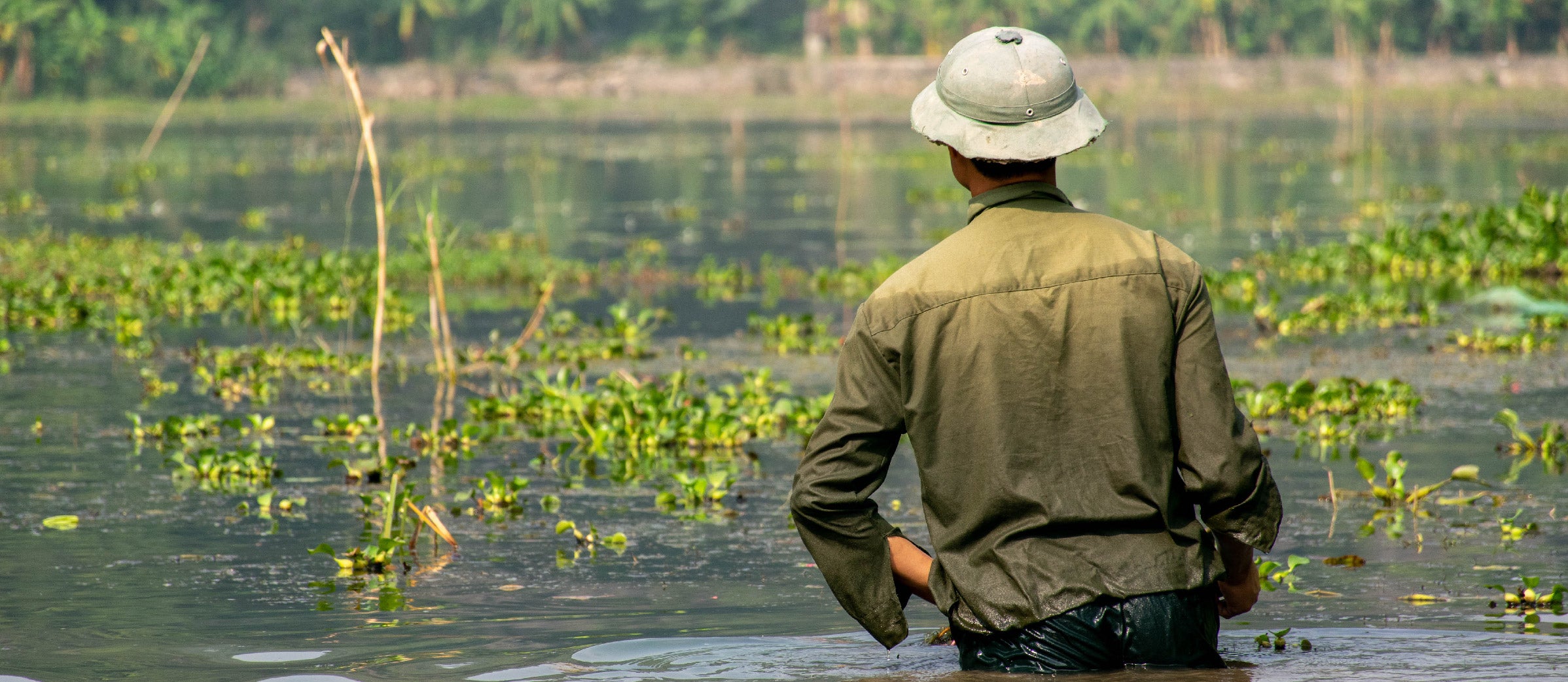 The research revealed that the negative effects of climate change will be mainly borne by developing countries, particularly those in tropical regions. Photo by Constant Loubier on Unsplash
The research revealed that the negative effects of climate change will be mainly borne by developing countries, particularly those in tropical regions. Photo by Constant Loubier on Unsplash
Although COP27 is over, our work to tackle the triple planetary crisis is far from complete. According to the state of the global carbon budget, fossil carbon dioxide (CO2) emissions increased by 5.1% relative to 2020, and the number continues to grow. International targets to stop global forest loss and degradation by 2030 are not being met, with deforestation of the Amazon rainforest breaking records in 2022. The significant carbon and water footprints of the livestock sector remain largely unaddressed, with little to no changes to how food is consumed and produced.
In this blog, we highlight three pieces of past KCP-supported research that bear highly relevant lessons for policy actions today ; they focus on solutions for a just energy transition, physical impact modeling for targeted adaptation planning and policy-making, and public engagement strategies.
1. Climate change and respiratory health – can clean cookstoves help?
Improved cooking technics are an important (but often overlooked) climate solution with benefits to public health and the environment. However, despite an abundance of evidence, use of and access to clean cookstoves still falls behind in developing countries. In fact, the World Health Organization estimates that 2.4 billion people lack clean cooking access.
- The first study looked into the possible motivations of using improved biomass-burning Mirt (which means “best” in Amharic) injera cookstoves. The research revealed that the most important determinant of stove user satisfaction came from reduced smokiness in the home. Having this knowledge should inform government strategies to promote the usage of cleaner cookstoves. The study also found that with experience, users were able to cook standardized batches of injera faster on the Mirt stove than on the traditional three stone tripod, which saves time, mainly for women.
- Additional research found that very young children’s exposure to household air pollution led to stunting of their growth. This effect was lessened by regular use of the Mirt stove over the longer term (as confirmed by stove monitoring devices used in the experiment). These findings – and more – are very relevant for governments who are looking for efficient, clean, and relatively low-cost energy solutions today, especially in remote and rural locations.
2. How will climate change impact society and the wellbeing of current and future generations?
From 2014 to 2017, KCP supported research that provided estimations of specific climate change damage functions from a series of meta-analyses. The results and the estimation model may be particularly helpful as the newly created loss and damage fund is operationalized, and as vulnerable countries plan for effective adaptation strategies. The project covers 140 countries and regions in the Global Trade Analysis Project 9 (GTAP9) dataset, and include six climate impacts: sea level rise, variation in crop yields, heat effects on labor productivity, human health, tourism, and household energy demand.
Overall, the research revealed that the negative effects of climate change will be mainly borne by developing countries, particularly those in tropical regions . The study also showed that the effects of sea level rise – which impacts the land stock through erosion, inundation, or salt intrusion along the coastline – are concentrated in a few regions, including the small island states of Oceania and Jamaica. For tourism, which is an understudied area of climate change impacts, the research showed that limited temperature increases are generally beneficial, but higher levels are detrimental in China, the Republic of Korea, Italy, and Turkey. For another example, the study shows that household demand for electricity will rise with increases in average seasonal temperatures, with the highest relative growth expected in African countries .
3. How can we mobilize more public support for climate-smart behavior and action?
Public engagement on climate change-related issues has significantly increased over the past decade, but much remains to be done to engage and educate the public. Drawing on psychology, social psychology, and sociology, a background paper prepared for the 2010 World Development Report (WDR) investigated challenges related to mobilizing social and political engagement with climate change.
The research found that individual experiences of negative emotions in conjunction with global warming play a role in collective climate denial and inaction . Problems related to climate change may be perceived as overwhelming and difficult to manage emotionally, which further reinforces negative associations. The paper recommended multiple approaches to mobilizing climate-positive behaviors, many already used by those on the frontlines of climate advocacy work: (1) Reframe negative connotations, build positive and non-threatening messages, and present information in a way that appeals to a more optimistic sense of self; (2) Create a sense of community and motivated citizenry; (3) Provide specific opportunities for tangible actions so that the gap between climate science and daily life can be reduced; and (4) Develop realistic, doable changes that are deemed credible.
The next 20 years and beyond
From international policy discussion to individual- and community-level behavior change interventions, research and data are the foundation upon which a climate-smart future is built. KCP will continue to take action by strategically intensifying related research and exploring bold new ideas to create a better, greener, and more resilient future.
This blog entry is part of a series that highlights insights from research for development policies and practices, supported by the Knowledge for Change Program (KCP).
The authors would like to acknowledge contributions from the following projects under the guidance of the following task team leads (TTLs) and researchers: Supporting Ethiopia’s Push for 9 Million Improved Cooking Stoves to Improve Health and Combat Climate Change, The Effect of Improved Biomass Cookstoves on Indoor Air Quality and Respiratory Health in Rural Ethiopia (TTL: Mike Toman); Sustainable Poverty Reduction and Shared Prosperity under a Changing Climate (TTL: S. Amer Ahmed); World Development Report 2010: Climate and Development (TTL: Marianne Fay).




Join the Conversation